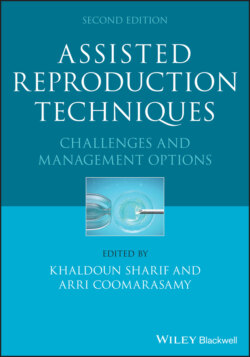Читать книгу Assisted Reproduction Techniques - Группа авторов - Страница 76
Management options
ОглавлениеThere is currently little evidence to support universal screening for thrombophilia in pregnancy or prior to IVF for the prevention of VTE [10]. However, screening for thrombophilia should be considered in women with a history of recurrent miscarriage, or personal or family history of VTE. The association between thrombophilia and OHSS is conflicting. According to one study thrombophilia is thought to be associated with a high risk of developing OHSS [11], and this has been proposed as an additional reason for screening for thrombophilia in women with a family or personal history of thrombosis prior to undergoing ovarian stimulation and in women who have developed OHSS. However, another study failed to show an increased prevalence of thrombophilia in women with severe OHSS undergoing ovulation induction. Therefore, the clinical and cost effectiveness for screening in this context could not be demonstrated [12].
Screening for thrombophilias should include the following:
plasma antithrombin
proteins S and C
antiphospholipid antibodies
factor V Leiden mutation
MTHFR C677T
The management of the woman with a single previous VTE has been controversial, but data from studies of pregnancy may guide therapy in the context of IVF. In a woman with a previous VTE that was not related to pregnancy or oral contraceptive use, and in whom no thrombophilia or other additional risk factor is present, thromboprophylaxis probably need not be prescribed [13]. However, in women with a previous VTE and underlying thrombophilia, or where the VTE was related to pregnancy or the oral contraceptive pill, or where additional risk factors are present, pharmacologic prophylaxis should be considered. This is illustrated in the Case History.
